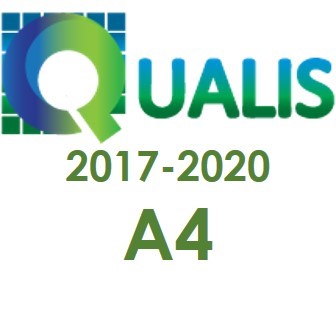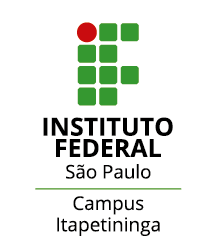A influência da cultura escolar e da experiência de liderança na motivação dos professores
Palavras-chave:
Cultura escolar. Liderança. Colaboração. Motivação dos professores.Resumo
Neste artigo apresentam-se resultados de um estudo misto mais vasto que decorreu durante três anos e que visou analisar as perceções dos professores sobre a cultura escolar e a experiência de liderança e a sua influência na motivação dos professores. Os dados foram recolhidos através de um inquérito por questionário (n=1334) e através de grupos focais (n=99). Os resultados sugerem uma associação positiva entre a motivação dos professores e o modo como percecionam a cultura escolar e a liderança. O artigo termina com uma reflexão acerca das implicações políticas e práticas dos resultados.
Downloads
Referências
ÁVALOS, B. Teacher professional development in Teaching and Teacher Education over ten years. Teaching and Teacher Education, v. 27, n. 1, p. 10-20, 2011. doi: https://doi.org/10.1016/j.tate.2010.08.007
ÁVALOS-BEVAN, B.; BASCOPÉ, M. Informal collaboration for professional improvement: Beliefs, contexts and experiences. Education Research International, v. 2017, 2017. doi: https://doi.org/10.1155/2017/1357180.
ÁVALOS, B.; FLORES, M. A. School-based teacher collaboration in Chile and Portugal. Compare: A Journal of Comparative and International Education, v. 52, n. 8, p. 1222-1240, 2022. doi: https://doi.org/10.1080/03057925.2020.1854085
CNE. Estudos. Regime de seleção e recrutamento do pessoal docente da educação pré-escolar e ensinos básico e secundário. Conselho Nacional de Educação (CNE), 2019. Available: https://www.cnedu.pt/content/edicoes/estudos_e_relatorios/Estudo_Selecao_e_Recrutamento_de_Docentes_julho2019.pdf. Access: February 2nd 2023.
DAY, C.; FLORES, M. A., & VIANA, I. Effects of national policies on teachers’ sense of professionalism: findings from an empirical study in Portugal and in England. European Journal of Teacher Education, v. 30, n. 3, p. 249-266, 2007.
DAY, C.; GU, Q. How Successful Secondary School Principals in England Respond to Policy Reforms: The Influence of Biography. Leadership and Policy in Schools, v.17, n. 3, p. 332-344, 2018. doi: https://doi.org/10.1080/15700763.2018.1496339.
DGEEC. Perfil do Docente 2019/2020. Direção-Geral de Estatísticas da Educação e Ciência (DGEEC), 2021a. Available: https://www.dgeec.mec.pt/np4/98/%7B$clientServletPath%7D/?newsId=148&fileName=DGEEC_DSEE_2021_PerfilDocente201920.pdf. Access: February 2nd 2023.
DGEEC. Estudo de diagnóstico de necessidades docentes de 2021 a 2030. Direção-Geral de Estatísticas da Educação e Ciência (DGEEC), 2021b. Available: https://www.dgeec.mec.pt/np4/506/%7B$clientServletPath%7D/?newsId=1305&fileName=DGEEC_Estudo_Diagnostico_de_Necessidade_.pdf Access: February 2nd 2023.
DOPPENBERG, J. J.; BAKX, A. W. E. A.; DEN BROK, P. J. Collaborative teacher learning in different primary school settings. Teachers and Teaching: Theory and Practice, v. 18, n. 5, p. 547-566, 2012. doi: https://doi.org/10.1080/13540602.2012.709731
DURKSEN, T. L.; KLASSEN, R. M.; DANIELS, L. M. Motivation and collaboration: The keys to a developmental framework for teachers’ professional learning. Teaching and Teacher Education, v. 67, p. 53-66, 2017. doi: https://doi.org/10.1016/j.tate.2017.05.011.
FLORES, M. A. The impact of school culture and leadership on new teachers’ learning in the workplace. International Journal of Leadership in Education, v. 7, n. 4, p. 297–318, 2004. doi: https://doi.org/10.1080/1360312042000226918
FLORES, M. A. Teacher resilience in adverse contexts: issues of professionalism and professional identity. In: M. Wosnitza, F. Peixoto, S. Beltman & C. F. Mansfield (Eds). Resilience in Education. Concepts, Contexts and Connections. Cham: Springer, 2018, p. 167-184.
FLORES, M. A. & DERRINGTON, M. L. School principals’ views of teacher evaluation policy: lessons learned from two empirical studies. International Journal of Leadership in Education, v. 20, n. 4, p. 416-431, 2017.
FLORES, M. A. & FERREIRA, F. I. Leading learning in schools in challenging times: Findings from research in Portugal, in T. Townsend (ed.) Instructional Leadership and Leadership for Learning in Schools. Understanding theories of leading. Cham: Palgrave Macmillan, 2019, ISBN: 978-3-030-23735-6, p. 133-162.
FORTE, A. & FLORES, M. A. Teacher collaboration and professional development in the workplace: A study of Portuguese teachers. European Journal of Teacher Education, v. 37, n. 1, p. 91-105, 2014. doi: https://doi.org/10.1080/02619768.2013.763791.
GROSEMANS, I.; BOON, A.; VERCLAIREN, C.; DOCHY, F.; KYNDT, E. Informal learning of primary school teachers: Considering the role of teaching experience and school culture. Teaching and Teacher Education, v. 47, p. 151-161, 2015. doi: https://doi.org/10.1016/j.tate.2014.12.011.
HAN, J.; YIN, H. Teacher motivation: Definition, research development and implications for teachers. Cogent Education, v. 3, n. 1, p. 1-18, 2016. doi: https://doi.org/10.1080/2331186X.2016.1217819.
HARGREAVES, A. Os professores em tempos de mudança: o trabalho e a cultura dos professores na idade pós-moderna. Alfragide: McGraw-Hill, 1998.
HARGREAVES, A.; O’CONNOR, M. T. Cultures of professional collaboration: their origins and opponents. Journal of Professional Capital and Community, v. 2, n. 2, p. 74-85, 2017. doi: https://doi.org/10.1108/JPCC-02-2017-0004.
KVAM, E. K. Untapped learning potential? A study of teachers’ conversations with colleagues in primary schools in Norway. Cambridge Journal of Education, v. 48, n. 6, p. 697-714, 2018. doi: https://doi.org/10.1080/0305764X.2017.1418833
KYNDT, E.; DOCHY, F.; NIJS, H. Learning conditions for non-formal and informal workplace learning. Journal of Workplace Learning, v. 21, n. 5, 369-383, 2009. doi: https://doi.org/10.1108/13665620910966785.
LIMA, J. A. Forgetting about Friendship: Using Conflict in Teacher Communities as a Catalyst for School Change. Journal of Educational Change, v. 2, p. 97–122, 2001. doi: 10.1023/A:1017509325276.
LOFGREN, H.; KARLSSON, M. Emotional aspects of teacher collegiality: A narrative approach. Teaching and Teacher Education, v. 60, p. 70-280, 2016. doi: https://doi.org/10.1016/j.tate.2016.08.022.
LOUWS, M. L.; VAN VEEN, K.; MEIRINK, J. A.; VAN DRIEL, J. H. Teachers’ professional learning goals in relation to teaching experience. European Journal of Teacher Education, v. 40, n. 4, p. 487-504, 2017. doi: https://doi.org/10.1080/02619768.2017.1342241.
MEIRINK, J. A.; IMANTS, J.; MEIJER, P. C. & VERLOOP, N. Teacher learning and collaboration in innovative teams. Cambridge Journal of Education, v. 40, n. 2, p. 161-181, 2010. doi: https://doi.org/10.1080/0305764X.2010.481256.
MILES, M.; HUBERMAN, A. M. Qualitative data analysis. 2nd ed. Thousand Oaks, CA: Sage Publications, 1994.
OCDE. Teaching and Learning International Survey (TALIS) 2018 Results (Volume I): Teachers and School Leaders as Lifelong Learners. TALIS, OCDE Publishing Paris, 2019. doi: https://www.oecd.org/education/talis-2018-results-volume-i-1d0bc92a-en.htm.
OECD (2019). TALIS 2018 Results (Volume I): Teachers and School Leaders as Lifelong Learners, TALIS, OECD Publishing. doi: https://doi.org/10.1787/1d0bc92a-en.
PALETTA, A.; ALIVERNINI, F., MANGANELLI, S. Leadership for Learning: The Relationships between School Context, Principal Leadership and Mediating Variables. International Journal of Educational Management, v. 31, n. 2, p. 98-117, 2017. doi: https://doi.org/10.1108/IJEM-11-2015-0152
REEVES, P. M.; PUN, W. H.; KYUNG SUN CHUNG, K. S. Influence of teacher collaboration on job satisfaction and student achievement. Teaching and Teacher Education, v. 67, p. 227-236, 2017. doi: https://doi.org/10.1016/j.tate.2017.06.016.
RICHARDSON, P. W.; WATT, H. M. G. Who Chooses Teaching and Why? Profiling Characteristics and Motivations Across Three Australian Universities. Asia-Pacific Journal of Teacher Education, v. 34, n. 1, p. 27-56, 2006. doi: https://doi.org/10.1080/13598660500480290.
SILVA, J. C.; AMANTE, L. & MORGADO, J. School climate, principal support and collaboration among Portuguese teachers. European Journal of Teacher Education, v. 40, n. 4, p.505-520, 2017. doi: https://doi.org/10.1080/02619768.2017.1295445.
TABACHNICK, B. G. & FIDELL, L. S. Using multivariate statistics (4th Ed.). New York: Allyn and Bacon, 2001.
VANGRIEKEN, K.; GROSEMANS, I.; DOCHY, F., KYNDT, E. Teacher autonomy and collaboration: A paradox? Conceptualising and measuring teachers' autonomy and collaborative attitude. Teaching and Teacher Education, v. 67, p. 302-315, 2017. doi: https://doi.org/10.1016/j.tate.2017.06.021.
WATT, H. G.; RICHARDSON, P. W. Motivational Factors Influencing Teaching as a Career Choice: Development and Validation of the FIT-Choice Scale. The Journal of Experimental Education, v. 75, n. 3, p. 167-202, 2007.
WATT, H. G.; RICHARDSON, P.W; KLUSMANN, U.; KUNTER, M.; BEYER, B.; TRAUTWEIN, U.; BAUMERT, J. Motivations for choosing teaching as a career: An international comparison using the FIT-Choice scale. Teaching and Teacher Education, v. 28, n. 6, p. 791-805, 2012.
WILLIAMS, A.; PRESTAGE, S.; BEDWARD, J. Individualism to Collaboration: The significance of teacher culture to the induction of newly qualified teachers. Journal of Education for Teaching, v. 27, n. 3, p. 253-267, 2001. doi: https://doi.org/10.1080/02607470120091588
YUAN, R.; ZHANG, J.; YU, S. Understanding teacher collaboration processes from a complexity theory perspective: a case study of a Chinese secondary school. Teachers and Teaching Theory and Practice, v. 24, n. 5, p. 520-537, 2018. doi: https://doi.org/10.1080/13540602.2018.1447458.
Downloads
Publicado
Como Citar
Edição
Seção
Licença
Copyright (c) 2023 Revista Internacional de Formação de Professores

Este trabalho está licenciado sob uma licença Creative Commons Attribution-NonCommercial-ShareAlike 4.0 International License.



 Este trabalho está licenciado sob uma licença
Este trabalho está licenciado sob uma licença 